

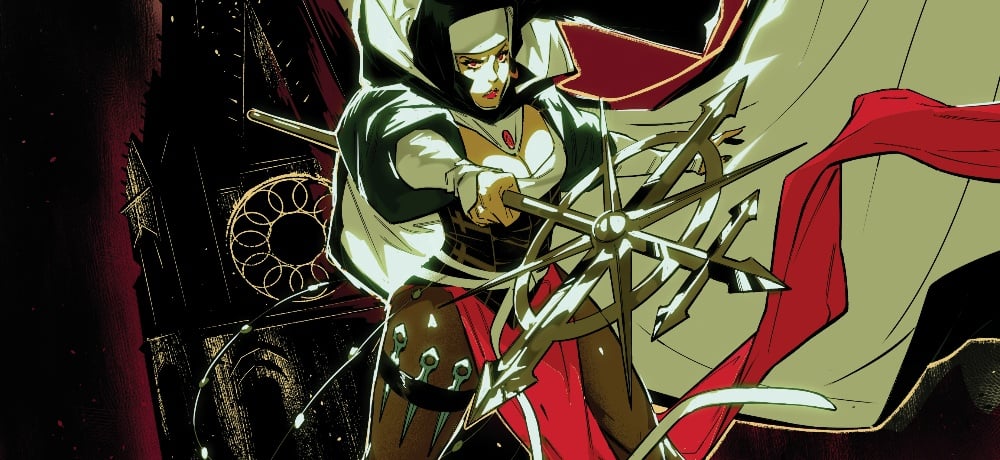
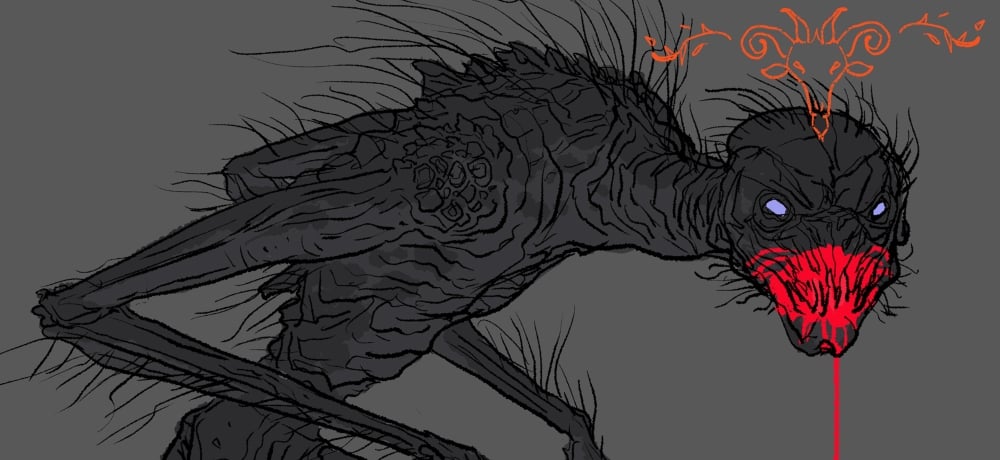
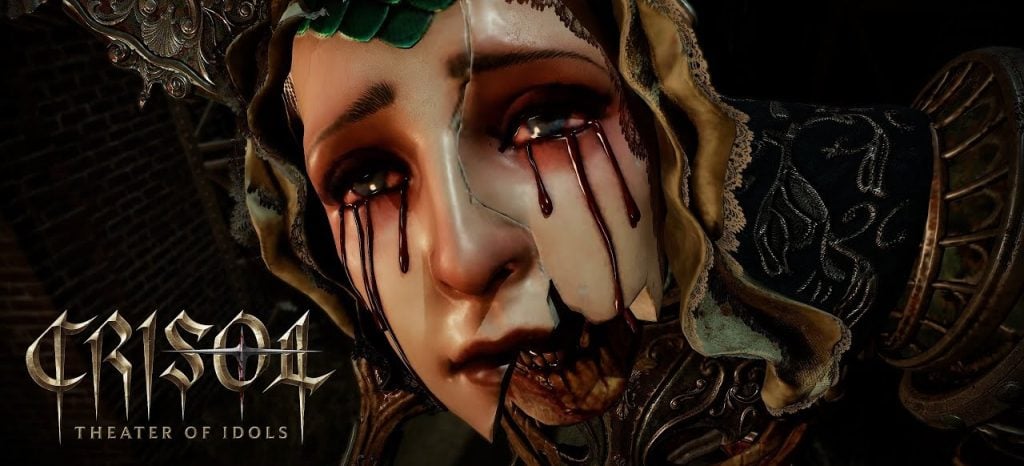
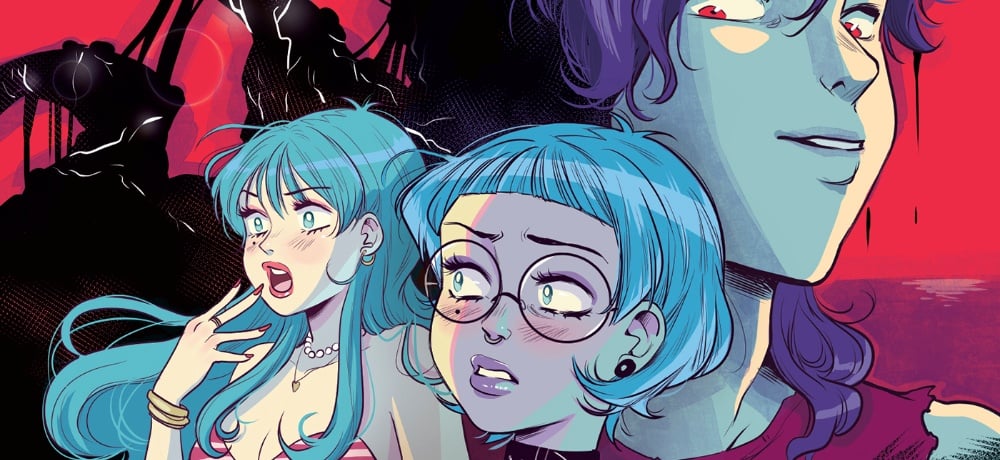
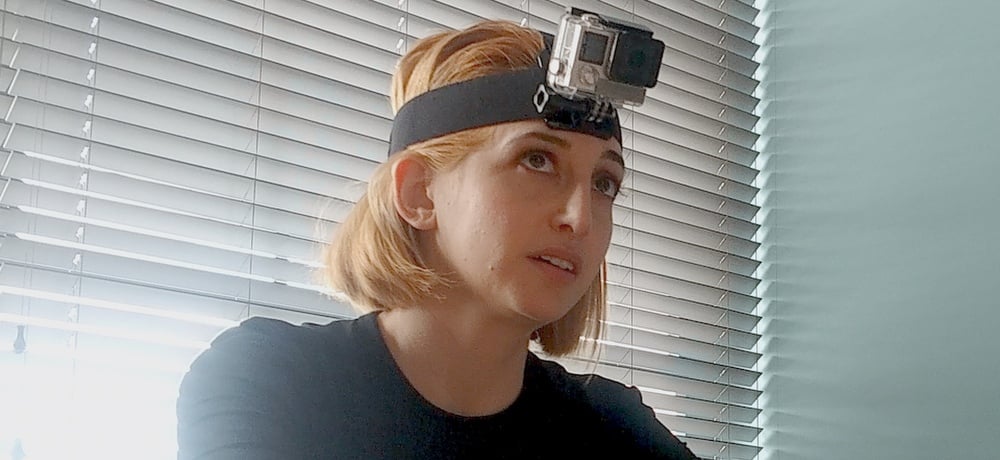
Last year, I had the opportunity to check out Gillian Wallace Horvat’s pitch-black meta horror comedy I Blame Society, and more than 12 months later, it has still stuck with me (I’ve even taken up calling people I don’t like “Stalin” now—thanks Gillian!). But not only is it entertaining, I Blame Society is an incredibly thought-provoking exploration of the trials and tribulations of indie filmmaking and one of the ballsiest movies to come along in some time. And now that the film is making its home media debut today, courtesy of Kino Lorber, I thought that this was the perfect time to catch up with Horvat to talk about her experiences working on her feature film debut.
During our interview with Horvat, she discussed blurring the lines between fiction and reality to play a version of herself in I Blame Society as well as why she felt like her leading the charge onscreen in the film added some authenticity to the project. Horvat also chatted about the difficulties many filmmakers face as they try to carve out a path in the industry and how she hopes that will one day change, as well as her initial fears of putting herself out there the way that she does with I Blame Society.
This feels like a very personal project for you, but it utilizes a heightened sense of reality obviously, since you aren’t actually a murderer [laughs]. Can you discuss the genesis of the idea of I Blame Society and putting yourself out there in a way that feels incredibly unique?
Gillian Wallace Horvat: Yeah, definitely. I knew that I was making myself vulnerable and that I really could fall flat on my face with this film because I’m out here, as a filmmaker, advertising the difficulties that you have in your career and challenging the notion of a meritocracy that people hold on to. So you're inviting people who are protective of that hierarchy to say, "Well, look. She just shows that the reason that she doesn't get these jobs is because she's not talented." I definitely had a target on my back, and it was a huge risk, but what I want to say is, "No. Really look at the film. I know what I'm doing."
You just mentioned how you put yourself out there in a very vulnerable way with I Blame Society. When you were working through the beats of what the story was going to be, were there ever moments where you pulled back a little or were you just like, "You know what? If we're going to do this, we're going to do this?"
Gillian Wallace Horvat: Well, I always wanted to push forward and to expose myself more, to exploit myself more. I really felt that. A lot of women don't get to make a second feature. There are people who have written about the one and done syndrome with female directors and directors of color. And it's really a true, sad thing. The Barbara Loden problem is real. So I definitely went in thinking this very well may be the only movie that I ever make, and I really needed to say something interesting. I really needed to cover a lot of ground and I really needed to be able to look at this in the future and feel that I didn't hold back.
One of my favorite movies is Black Swan. I wanted to go full Black Swan. I wanted to feel that it was all right to die for one amazing performance because I feel that way, because I'm a maniac. It's true. I feel like the art is really what matters, and whatever you have to do in the process to make it, short of hurting another person—because that's where I diverge with my character—then everything is allowed.
So, when you were figuring out how you were going to stage this and all these things, did it ever cross your mind to hire an actress to "be Jillian onscreen?" Or did it feel more authentic for you to just throw yourself in the middle of it?
Gillian Wallace Horvat: Well, I initially, of course, wanted somebody more experienced to play me. But because the film is built out of real footage from a real documentary that I didn't finish, that wouldn't have been possible. And part of the selling point to the producers and to our investors was that we already have footage that was shot, so we could just build out on what we'd already done. And originally, we actually thought we were going to use that footage a lot more. But our editor, Sarah Beth Shapiro, really just liked the new footage that we shot, so it ended up being less integrated than I thought it was going to be. And in hindsight, it looks like I could have absolutely gotten somebody else to play the part. But conceptually going in, that wasn't the case.
Also, I think now that it makes it stronger from a meta-narrative standpoint, that I am playing myself, and it does make it more interesting. It does blur the lines more. It does raise questions about my sanity as a filmmaker and what kind of a person I am. And I think it leads to an interesting speculation throughout the film that engages the viewer in a way that it wouldn't have been if I had gotten my first choice, Lily Collins, to play me. I just love her so much. I really think she would have done me right. She's the pop royalty version of me [laughs].
With I Blame Society, I know you obviously want people to be entertained and you want to share some perspective of yourself as a filmmaker who’s trying to make her way in the industry. But what are you hoping that folks get out of the experience of watching this film?
Gillian Wallace Horvat: I think there are a couple of different things that I'd love to have people take away from it. The first is that, no matter what your field is, to hold on to your anger and to let that fuel you to make changes and to recognize inequalities in whatever industry you're in. Also, to not normalize that behavior whenever that kind of stuff happens. I think something else that is important is realizing that you can control what you do and what you bring to the table. With this version of Gillian, she doesn't conform. She's always resisting to the end. She's asked by these producers to riff on their ideas, and instead, she takes her own idea and she brings them something that’s uniquely her that’s also a fully formed spec project. It’s not what they wanted, but it's something that's authentically her.
And I think that's how we're going to change our fields, that's how we're going to change our industries, no matter what field we're working in. Whether you have a small business or whether you work as a journalist. I think by holding on to your authenticity and banging on with that until people listen, that's how you're going to make changes. Not by working your way to the top, playing the game, learning how to play ball with the right people. They're just going to eat you up and shoot you out. You cannot make changes from within. You have to batter your way in from the outside fully formed, and when you are flaming with fury.
How did this experience of making this film change you as a storyteller, as a creative person? What ended up being your biggest takeaway from making this film?
Gillian Wallace Horvat: I think in a really good way, it reignited my love of underground filmmaking. Because I feel like this is not an independent film, this is an underground film. We really made it outside of all of the institutions of the system, including the independent film system. And I'm really pleased that it's done as well as it has, because that really speaks to the quality and the authenticity that comes through on underground films, as opposed to films that go through a more typical, independent film pipeline, where everybody's on their way in or out of the studio system or trying to create this parallel system that is very much based on the studio system. Whereas, the underground world is very raw—for better or for worse. You have very, very, very few resources and you're compensated for that with total creative control. And the nice thing is, is that with that total creative authority, I didn't fall flat on my face here, which feels great.
What are you working on these days then?
Gillian Wallace Horvat: Well, right now I am working on an independent film as a writer. And so my next project is with Olivia Kuan, who's the DP in the film. She's going to make her directorial debut. It's so cool. She hired me to write a script for her about a woman who was a pioneer in sports journalism. Her name was Anita Martini, and she was the first woman to ever get on the field at a baseball All-Star Game, and she was the first woman to break the locker room barrier and do a locker room interview with a professional sports team.
Even though it's a much more conventional genre, the biopic and the sports biopic, I really want to radicalize it formally and also by paying my respects to a woman who was a complicated person, but made room for women who came after her and was pretty quickly forgotten. And, also, she found herself fighting the same battles over and over again against male gatekeepers. And so I think that if I could hopefully find a niche for myself making stories about strong women, that would be cool. But I also have other scripts that I'm working on that are super different, that are really dark and have really dark male characters at the center because I actually love writing troubled men. That voice comes really easy to me. There's this thing that I feel like I know what men are thinking and are saying about me, but aren't articulating it and I just can tap into it so quickly. So I’m excited to do something like that eventually, as well.
But I do feel like even though this film is pretty abrasive, it's also very entertaining. And I don't believe that I had shut myself out of the industry by criticizing it, because I think that because of the success of this movie, I've proven that I'm a commodity that makes money and people just want to work with people that they think will make them money. If people think you'll make money, then they want to work with you, and I hope that I’ve been able to go out there and prove myself as someone of value with I Blame Society.
---------
Go HERE to catch up on all of our Indie Horror Month features!